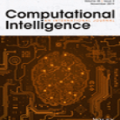Computational Intelligence (CI) in computer games plays an important role that could simulate various aspects of real-life problems. CI in real-time decision-making games can provide a platform for the examination of tree search algorithms. In this paper, we present a rehabilitation serious game (ReHabgame) in which the Monte-Carlo Tree Search (MCTS) algorithm is utilized. The game is designed to combat the physical impairment of post-stroke/brain injury casualties in order to improve upper limb movement. Through the process of ReHabgame the player chooses paths via upper limb according to his/her movement ability to reach virtual goal objects. The system adjusts the difficulty level of the game based on the player's quality of activity through MCTS. It learns from the movements made by a player and generates further subsequent objects for collection. The system collects orientation, muscle and joint activity data and utilizes them to make decisions. Players data are collected through Kinect Xbox One and Myo Armband. The results show the effectiveness of the MCTS in the ReHabgame that progresses from highly achievable paths to the less achievable ones, thus configuring and personalizing the rehabilitation process.
翻译:计算机游戏中的计算智能(CI)可发挥重要作用,模拟真实生活问题的各个方面。 实时决策游戏中的CI可以提供一个平台,用于检查树搜索算法。 在本文中,我们展示了一个重修游戏(ReHabgame),使用蒙特-卡洛树搜索(MCTS)算法;该游戏旨在打击中继/脑损伤伤亡造成的身体损伤,以改善上肢运动。通过ReHabgame过程,玩家根据他/她达到虚拟目标对象的移动能力选择上肢路径。这个系统根据玩家的活动质量调整游戏的难度水平。它从玩家的运动中学习,并生成更多的收集对象。这个系统收集方向、肌肉和联合活动数据,并利用这些数据来作出决定。玩家数据是通过Kinect Xbox One和Myo Armband收集的。结果显示,在重新操控游戏中,MCTTS从高度可实现的路径发展到难以实现的个人修复过程。





